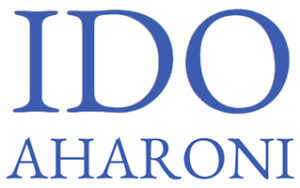Zionism is as popular now as it has ever been on North American campuses, according to a former top Israeli diplomat who now teaches at multiple American universities.
The bad news, he added, is that Zionism was never a hit on North American campuses.
“Zionism was never popular in academia,” said Ido Aharoni, speaking with the Independent during a trip to Vancouver as a guest of Canadian Friends of the Hebrew University. “In fact, I would argue that … we’ve never had so many Zionists in North America as we have today.”
Protests on campuses and reports of professors inculcating anti-Israel ideas are disturbing, he said, but it’s not new.
“The people that are at the front of the effort, that spearhead the effort, are different,” he said, arguing that the vanguard now is comprised of foreign students and descendants of immigrants from societies where antisemitism is endemic. “But it’s the same thing, the same messaging that was designed by the Soviet Union.”
Aharoni is a 25-year veteran of Israel’s foreign service, a public diplomacy specialist, and founder of the Brand Israel program, which, since 2002, has sought to reposition Israel in the public mind globally. He served in the Israeli consulate in Los Angeles in the 1990s and was consul general of Israel in New York and the Tri-State Area from 2010 to 2016.
Since retiring from government in 2016, Aharoni has lectured and spoken at academic institutions including Harvard, Yale, Princeton, Wharton and Berkeley on topics such as Israel’s foreign relations, mass media, the information revolution, public marketing, and nation branding. He has served as a professor of business at Touro University, as a professor of international relations at New York University and is the Murray Galinson Professor of International Relations at University of California in San Diego and San Diego State University’s business school.
In addition to teaching and lecturing, Aharoni provides advice to international companies to access Israeli innovation. He also helps businesses and agencies communicate with governments. His third focus is strategy and planning, particularly helping clients tell their story.
Aharoni contests widely held assumptions, including that Israel is unpopular in Western countries. Opinion polls say large majorities of respondents side with the Jewish state, he said. That does not necessarily translate, however, into family vacations in Israel or investments in Israeli enterprises. Changing that mindset could include convincing non-Israelis to consider differently the challenges the country faces.
“Think of terrorism the same way you think of crime in any major urban centre in North America,” he said. “If you only focus on attempts to carry out criminal acts, or the number of criminal acts carried out, then the picture can be very scary.”
If all anyone heard about Vancouver was crime statistics, he said, they might be reluctant to visit or invest. “That’s what happened in Israel,” said Aharoni. “We communicated our problems to the world. At one point, it became the only thing we communicated to the world. As a result, the world doesn’t see us beyond those problems.”
It’s hard to alter a narrative once it is set, he said. And yet, he added, Israel is no more dangerous a place to visit – and far more stable a place to invest – than many other spots in the world.
“You know how many inflammations of violence we have right now in the world taking place?” he asked. “People are talking about Israelis and Palestinians as if it’s the only conflict in the world and I think there’s something wrong about that.”
Early in his career, Aharoni was involved in the beginnings of the Oslo Peace Process. He was the policy assistant to Uri Savir, director-general of the Israeli foreign ministry under then-foreign minister Shimon Peres. “I was part of a very small group of people that knew about the secret negotiations and my job was mostly to prepare him for meetings,” he said.
Aharoni rejects the narrative that the entire process is a story of failure. What did fail was the assumption by Israelis and the broader diplomatic world that Yasser Arafat would confront the extremists on his side, get Hamas in hand, end incitement against Israelis and prepare his people to live in peaceful coexistence.
The Palestinians faced their Altalena moment, he said, citing a pivotal incident in the earliest Israeli history, when the prime minister, David Ben-Gurion, ordered the nascent Israel Defence Forces to attack the Irgun ship Altalena, effectively ensuring there would be a single, unified military force in the country.
“If you ask me, this was the biggest mistake: the assumption that Arafat was of that calibre. But the truth is that Arafat was no Ben-Gurion,” said Aharoni. “Arafat was not of that calibre. He was in it way over his head. He didn’t have the skill or the character – nor the desire. To have the desire, you have to have some knowledge of history, you have to have some depth. He had none of that. He was in love with the position of a rebel, of a revolutionary. He thought he was Che Guevara and that was his historical reference. If you ask me, that was the biggest failure.
“Other than that,” he argued, “Oslo was a big success.”
Before Oslo, he noted, Israel did not recognize the existence of the Palestinians and vice versa. The recognition and direct contact between the two sides, for whatever shortcomings that dialogue has had, allows Israel to coordinate anti-terror efforts with the Palestinian Authority.
“A lot of people don’t know that,” he said, “but the Palestinian Authority, which is the creation of the Oslo Accords … they have been very instrumental helping Israelis curb terrorism coming out of the West Bank.”
Oct. 7, 2023, or “10/7,” changed everything, he said.
“Before 10/7, there was this expectation on the part of Israelis that, somehow, we will be able to introduce peace in its full conceptual meaning.… I think, after 10/7, it’s very difficult for people to imagine that kind of peace.”
The best hope now, probably, is what Aharoni calls “a livable arrangement,” which would protect Israel’s security needs and deliver maximal Palestinian civil self-rule, while limiting the Palestinians’ military capabilities. Eliminating the antisemitism and genocidal incitement in the Palestinian and broader Arab education systems is another priority, he added.
Aharoni forcefully rejects the idea that support for Israel has become a partisan wedge issue in the United States, noting that a vote on an Israeli aid package passed the US Congress after 10/7 with 366 in favour, 58 against and seven abstentions.
“It’s true that we pay a lot of attention to the fringes,” he said, citing vocally anti-Israel representatives Ilhan Omar and Rashida Tlaib, who, he said, “represent a very marginalized and very narrow agenda.”
Aharoni was in Vancouver to meet with local supporters of Canadian Friends of the Hebrew University. CFHU will host a public event next month, in which the mayor of Jerusalem, Moshe Lion, will be in conversation with Rabbi Jonathan Infeld. The event, titled Diversity as Strength During Challenging Times, takes place June 9, at 7:30 p.m. Register at cfhu.org/moshe-lion.


